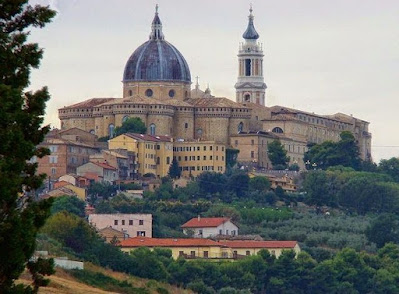Walking to Loreto

The idea of making a pilgrimage, that is, journeying to a place of spiritual significance, is commonly understood by Catholics and non-Catholics alike, but as to what may be entailed by an Ignatian pilgrimage might require some explanation. Basically, such a pilgrimage is undertaken after the example of that perennial pilgrim St. Ignatius of Loyola, who wanted to follow the steps of the first disciples of Christ, who were sent to preach without any provisions (Mt 10:5-16, etc.), and to rely entirely on whatever God would provide. It was in this spirit of trusting in Providence, that I, too, set out for an eight-day foot pilgrimage in Italy, with one travelling companion, no money, just a razor and a toothbrush between us. We were both, it should be said, living in Rome and discerning our vocations. A pilgrimage such as this was both indicative of our youth and anticipatory of the consecrated life to which we were drawn. Our destination, we decided, would be the Marian shrine at





